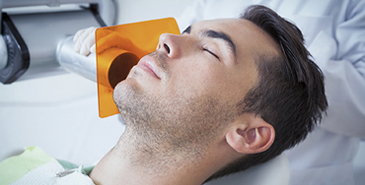Sleep Dentistry
General Sedation, IV and Oral sedation are different types of sedation offered at our clinics, and are beneficial during complex procedures.
Sedation dentistry is available for the comfort of patients while receiving dental care, especially during complex procedures.
Benefits of sedation dentistry include:
- Patient comfort and relaxation
- Movement control
- Control of gag reflex
- Time saving - fewer dental visits needed
Different types of sedation:
Sedation options range from light sedation (conscious during dental procedures), to deep conscious sedation, to being fully asleep.
Minimal sedation
Minimal sedation involves the use of Nitrous Oxide, known as laughing gas. The patient is completely conscious, but has a pleasant, relaxed feeling while they inhale the gas during the procedure.
Oral Sedation
This is a light sedation, where you are also awake but may not remember the details of the dental procedure. Oral medication from the group of drugs known as Benzodiazapines are prescribed to relieve anxiety before your dental appointment. The sedative and amnesic effect of these drugs causes many patients to remember little or nothing about their dental appointment.
Conscious IV Sedation
IV sedation involves the use of an intravenous. You remain awake during conscious IV sedation, but you are in a state of deep relaxation and like oral sedation, will remember little of the appointment afterwards.
Sleep Dentistry
You receive general anesthesia administered by a dental anesthesiologist, and you are asleep throughout the dental procedure. This is a good option if you need a multiple dental procedures that would normally take several visits to the dentist. With sleep dentistry, you can have them all done in one session.
Are you a candidate for sedation dentistry?

Almost anyone — adult, teen or child — is a candidate for sedation dentistry. It's particularly useful for people with a fear of dental visits, or people with a history of anxiety/panicking, but it's also preferred by people who would simply rather not be “aware” during a procedure.